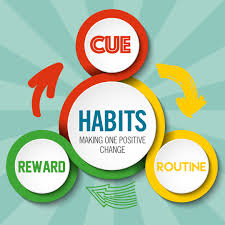
MENTAL DIET: How Habit Can Change Your Life (Part 3)

“When you choose a habit, you also choose its attendant consequences.”
- UDEME ARCHIBONG
THE COSTS AND REWARDS OF HABIT
Any habit fully acquired (both good and bad habits) comes with its own cost for maintaining and sustaining the habits. Every habit of life comes with two kinds of costs, which must be paid in full:
- The cost of acquiring and sustaining the habit.
- The cost or reward of the consequence of the habit.
No thought lives in your head rent-free; it’s either an asset or a liability. No habits you’ve been accustomed to stay in your life rent-free; it either yields positive consequences or brings about negative consequences.
The pain of discipline of cultivating and sustaining positive habits yields the dividends of a great life. The pleasure of forming and maintaining negative habits accrues the pressures of a failure-laden existence.
Many people get trapped in bad habits because of the immediate gratification syndrome; they would rather be engaged in behaviors that will give them pleasure in the short term, forsaking the long-term consequences, than being engaged in behaviors that demand the pain of discipline, which yields positive reward in the long term.
I believe bad habits are basically caught and taught; to make a house be in a bad shape, just leave it for a length of time, and deterioration sets in. Good habits are basically taught rather than caught; to keep and sustain a house in good shape, you must make a deliberate choice and effort to make and keep it clean and tidy.
Therefore, bad habits automatically surface if one is passive and leaves life to chance. On the other hand, good habits can only be formed and sustained by being an active participant in your life by choice.
A life left on its own and by itself gets run-down by bad habits. A life that is improvement-driven gets run up by cultivating good habits.
Activeness and not passiveness energize your forward motion in cultivating better habits. When you wait to feel like it, you will fail in your habit formation. However, when you act like it, you activate the operation of the formation of good habits.
To get a habit is not an event but a process. Therefore, to break a habit is a process and not an overnight myth. Patience keeps you in pace with producing good habits. Falling and rising is the prelude to mastering rising and never falling.
When only results matter to you, it won’t be a matter of convenience but rather a matter of commitment. Daily disciplines make for the daily private victories that culminate in public victories. 100% commitment makes for the turnover of success.
https://successrecipeblog.com/mental-diet-how-habit-can-change-your-life-101/











